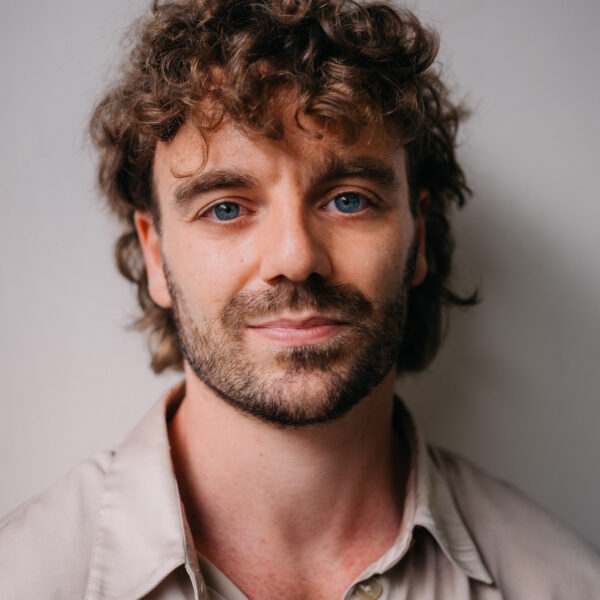This research project of the Geneva Academy of International Humanitarian Law and Human Rights explores how neurotechnological innovation — from neurostimulators and brain–computer interfaces to neural data analytics — challenges existing human rights frameworks.
It investigates how interdependent human rights, including the rights to privacy, autonomy, equality, and freedom of thought can be protected as neurotechnologies evolve in therapeutic treatments and for consumer applications.
The project contributes to global debates on the governance of emerging technologies by developing human-rights-based approaches to legislation and regulatory oversight, and by engaging directly with policy processes in Geneva and beyond.
This project investigates both the benefits and the externalities of neurotechnologies development — including the potential violation of privacy, autonomy and integrity to broader societal consequences for inclusion, non-discrimination and safety.
Its aim is to equip policymakers, regulators, and private actors with a shared understanding of these benefits and risks to promote governance frameworks that integrate human rights principles into the design, development and use of neurotechnologies.
Research also examines the responsibilities and obligations of businesses and States in ensuring that innovation contributes to protecting people’s human dignity and promoting social welfare.
The project combines legal, ethical, and policy perspectives in a multi-disciplinary partnership between the Geneva Academy, the University of Antwerp, and Tilburg University.
It employs legal analysis, stakeholder consultation, and mapping of current regulatory and governance models in Europe and across the global regions.
A key focus is the integration of research outcomes into international standard-setting processes, particularly within the United Nations Human Rights Council’s Advisory Committee, which is preparing recommendations on the human rights dimensions of neurotechnology.
Research Publications
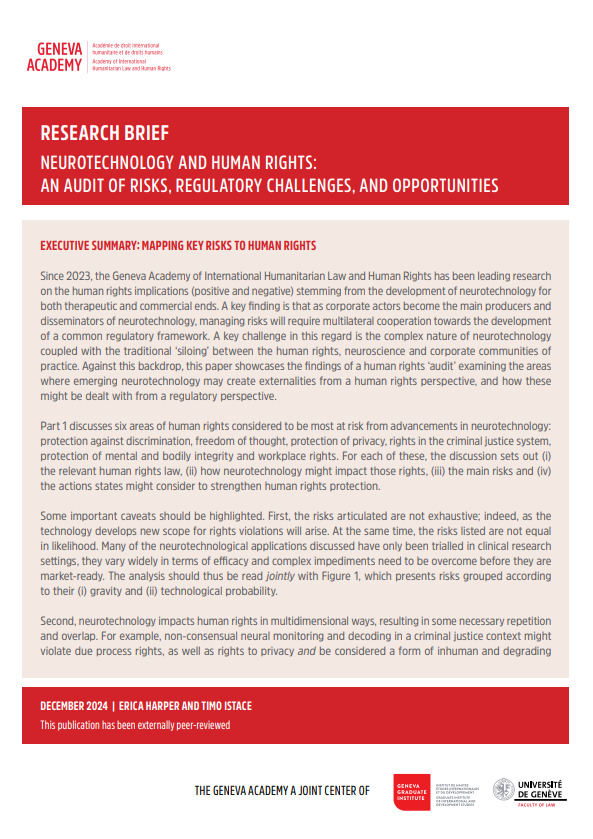
Neurotechnology and Human Rights: An Audit of Risks, Regulatory Challenges, and Opportunities
Geneva Academy of International Humanitarian Law and Human Rights
Erica Harper, Timo Istace
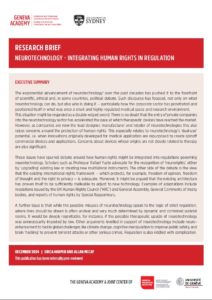
Neurotechnology – Integrating Human Rights in Regulation
Geneva Academy of International Humanitarian Law and Human Rights
Erica Harper, Allan McCay
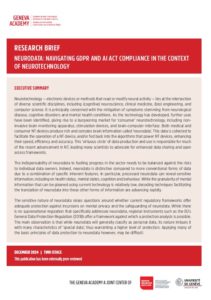
Neurodata: Navigating GDPR and AI Act Compliance in the Context of Neurotechnology
Geneva Academy of International Humanitarian Law and Human Rights
Timo Istace

Between Science-Fact and Science-Fiction Innovation and Ethics in Neurotechnology
Geneva Academy of International Humanitarian Law and Human Rights
Milena Costas, Timo Istace
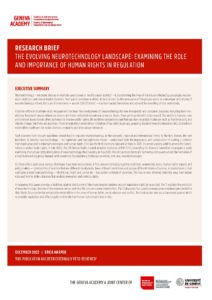
The Evolving Neurotechnology Landscape: Examining the Role and Importance of Human Rights in Regulation
Geneva Academy of International Humanitarian Law and Human Rights
Erica Harper
- Symposium on Neurotechnologies and Human Rights (December 2025)
- Expert meeting: Neurotechnology and Human Rights – Mapping Risks, Strengthening Regulation and Promoting the Development of International Human Rights Law (Geneva and Sydney, 2023–2024).
- Presentation at the 55th session of the UN Human Rights Council side event on Neurotechnology (March 2024).
- Workshop: Towards a Neurotechnology-Integrated Society: Seizing Opportunities, Managing Risks and Pathways Forward (June 2024).
- Blogpost: To “Neuroright” or Not to “Neuroright” – Leuven Centre for IT and IP Law, 2024.
- Blogpost: Neurotech for Good? Jobs, Justice, Global Challenges and Beyond (Part 1) – Leuven Centre for IT and IP Law, 2024.
- Participation in the UN Human Rights Council Advisory Committee’s Expert Meeting on Neurotechnology and Human Rights (2024).
- Presentations at the IEEE Big Data Conference (December 2024) and the Uppsala University Medical Ethics Conference (June 2024).
- Engagement with GESDA, UNESCO, OECD, WHO, and ILO on multilateral cooperation around neurotechnology governance.
Research Team
Partners
University of Antwerp, Tilburg University
Funding
Swiss Federal Department of Foreign Affairs (FDFA) (2025) and the Swiss Network for International Studies (SNIS) (2023-2025)




